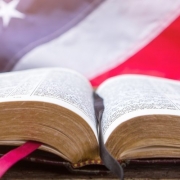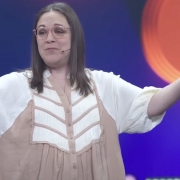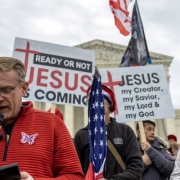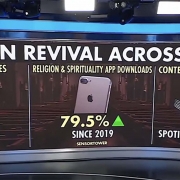Must our quests for liberty be mutually exclusive?
This article originally appeared at Baptist News Global on July 16, 2024.
There’s a strange tension in the minds of many people between the desires for independence and community.
It comes up often in conversations about churches and denominations. A church may want to be independent yet participate in the community of a denomination or family of churches.
When I was an independent fundamentalist Baptist, our community was limited to the independence of our church. We regularly spoke out against the Southern Baptists, who we feared might make us be in community with liberals financially or theologically.

Rick Pidcock
Southern Baptists lean into one or the other depending on what they want to accomplish. If they want to recruit new members through evangelization, they lean into the benefits of being part of a denominational community with large outreach programs. But if they have to deal with a sexual abuse scandal, they claim to be independent and unable to deal with the problem.
At an individual level, Baptists promote the idea of “soul liberty,” which says individuals have the freedom to decide how to interpret and apply the Bible to their lives, without being coerced by someone else or an organization. But individual Baptists also are part of the community of a church or denomination that influences how they interpret and apply the Bible.
“Sometimes individuals can wield the power of the community by attempting to force others to submit to them.”
Sometimes individuals can wield the power of the community by attempting to force others to submit to them. We see this every time the Southern Baptist Convention meets to pass their myriad of resolutions against whoever or whatever they’re opposed to.
And that’s where the tension comes in. Amid our desire for independence and community, two sides emerge. Some people respond by making “both-sides” arguments that imply both sides are exercising power over their neighbors by positioning themselves at the top of a hierarchy. They may present themselves as part of an objective third way, noticing the wrongs of everyone equally from a place of disconnected clear-headedness above it all.
But what about the people who openly embrace one side or the other, who strongly identify either as being part of a conservative or liberal community of minds?
How do those people work out the struggle between wanting to be independent from the other side, while having to be in community with the other side in certain contexts?
Some of these tensions began to clear up for me last week as I reflected on a recent piece I wrote for BNG while also experiencing Independence Day with my neighbors.
The other side is persecuting my side
The title of that recent piece was provocative: “Conservative evangelicals claim they are being persecuted by not being allowed to persecute LGBTQ foster kids.”
I didn’t write that headline, but I love it because it was a surprising yet blunt way of saying what I was arguing. By claiming religious persecution for not being allowed to disparage LGBTQ kids, conservative evangelicals are exercising the power of persecution over LGBTQ kids. It’s quite a disturbing accusation, and one I believe anyone who is thinking clearly should obviously know is true.
“I couldn’t help but notice how the other side was saying the same thing about those of us on the left.”
But as I was making my case, I couldn’t help but notice how the other side was saying the same thing about those of us on the left.










Leave a Reply
Want to join the discussion?Feel free to contribute!